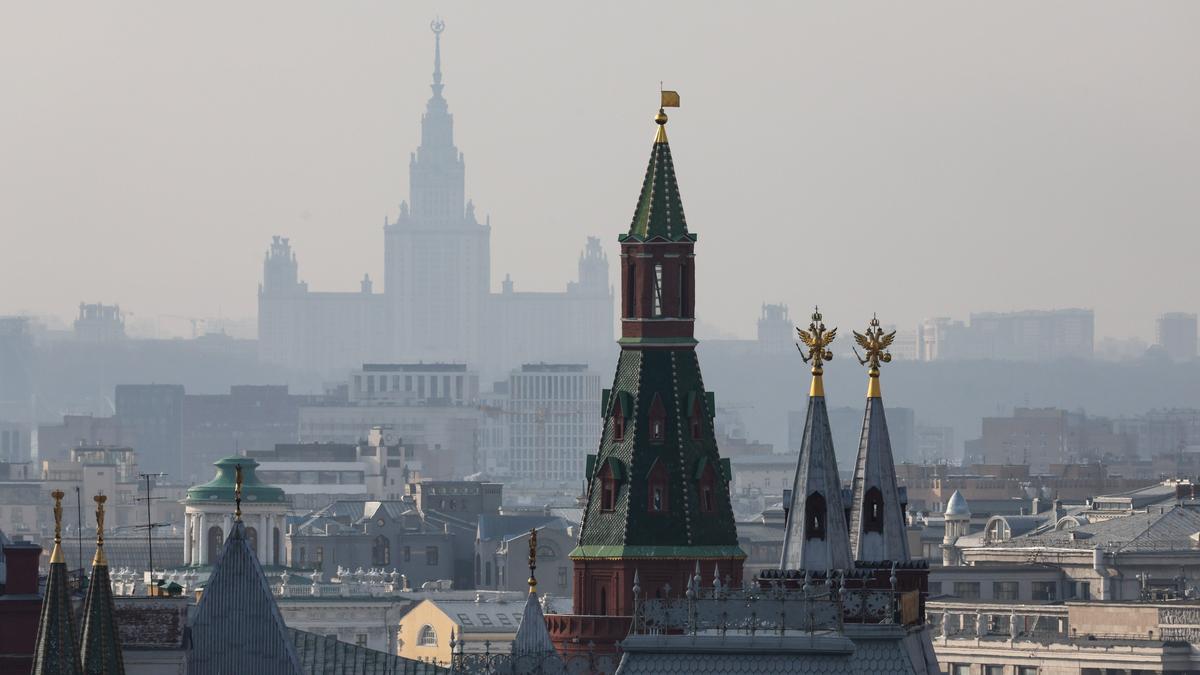The outcome of Russia’s war on Ukraine matters not just for those countries’ future, but for all of Europe. The root cause of the conflict is Vladimir Putin’s obsession with restoring his country’s status as an imperial power. Old Russia was a highly centralised empire, or what Lenin called a “prison of nations”. Indeed, it is Lenin whom Putin blames for breaking the old imperial order and allowing Ukraine to find its own path.
Carl Bildt
Former Swedish prime minister and foreign minister
But Putin has not been very successful in pursuing his vision. When he sent more than 100,000 troops into Ukraine in February 2022, most observers — including virtually all the West’s experts on the Russian army — anticipated a quick victory. But three and a half years later, most of that initial invasion force is gone. Putin may have three times as many newly recruited soldiers stationed along the front lines, but he controls less than 20% of Ukraine’s territory.
No one expected the Russian army to perform so abysmally, and the question now is whether there is any way Putin can still win the war. His first option is to keep pursuing his original objective: an outright military defeat for Ukraine. But the nature of the war has changed considerably over the past few years. Owing to rapid technological changes on both sides, defence works better than offence. It is much easier to hold territory than to take more of it.
For almost two years, the Russian army has not been able to mount any consequential offensive operations, and there are few signs of this changing.
While Ukraine has achieved a technological edge, Russia is catching up fast, and both sides have increasingly targeted the other’s vital energy infrastructure. But the likelihood of the Russian army defeating Ukraine’s is very small. Putin boasts about incremental advances — as when he recently assembled his commanders in St. Petersburg to lay flowers on the tomb of Peter the Great — but these gains lack much strategic significance. For almost two years, the Russian army has not been able to mount any consequential offensive operations, and there are few signs of this changing.
Putin’s second option was to persuade US President Donald Trump to impose a settlement in Russia’s favour, akin to the agreement Hitler struck with Neville Chamberlain and Édouard Daladier in 1938 to gain part of Czechoslovakia. That is why Putin invested so much in flattering Trump and dangling various pecuniary temptations like new investments in Russian natural resources. It almost worked. Putin came close to getting his way at the ill-fated meeting with Trump in Alaska. But Europe’s leaders quickly stepped in, and their subsequent support for Ukraine has effectively blocked this option.
A third avenue to victory is to buy time and hope that European support withers away. Since US financial and military assistance for Ukraine has largely dried up under Trump, the entire burden now falls on the Europeans (and a few others). This is no small matter. We are talking about €60-80 billion per year, 0.2–0.3% of European GDP.
A scaled model of the Statue of Liberty is displayed draped in a Ukrainian flag in the gardens of the French Embassy in Washington, DC, USA, 18 August 2025. Photo: EPA / YVES HERMAN / POOL
But European political support for Ukraine is robust. While fiscally strained countries like France, Spain, and Italy are unlikely to contribute much financially, Norway, which has profited mightily from the war-driven run-up in energy prices, could make up for much of the lost US financing. Moreover, a proposal to extend Ukraine a €140 billion loan backed by frozen Russian assets held in Belgium could shore up Ukraine’s economy and defence production. While the proposed scheme is complicated, pulling it off is eminently achievable with sufficient political will.
If Russia’s army can’t deliver victory, and if Trump can’t force Ukrainian President Volodymyr Zelensky into submission as long as European financial support holds, then the Kremlin has no credible path to victory. Although Russia’s leadership seems utterly oblivious to this reality, the conclusion is inescapable.
Any end to the war — or to its active phase — in which Ukraine remains sovereign and independent will represent a loss for Putin.
Of course, what happens next is an open question. Putin might well try to escalate, even though he has no good options for doing so. Or he might eventually agree to a ceasefire and try to dress it up as victory. But any end to the war — or to its active phase — in which Ukraine remains sovereign and independent will represent a loss for Putin. While territory matters, sovereignty is the key issue.
After that, securing and rebuilding a still-sovereign Ukraine will be a demanding task, but certainly not an impossible one. This process would include accession to the European Union, deep economic reforms, and a strong defence posture to deter future aggression.
In this scenario, the only viable path for the current Kremlin leadership would be to give up its imperial dream and concentrate on strengthening Russia as one nation-state among many. The sooner those in power come to this realisation, the better it will be for Russia and its neighbours.
This article was first published by Project Syndicate. Views expressed in opinion pieces do not necessarily reflect the position of Novaya Gazeta Europe.

